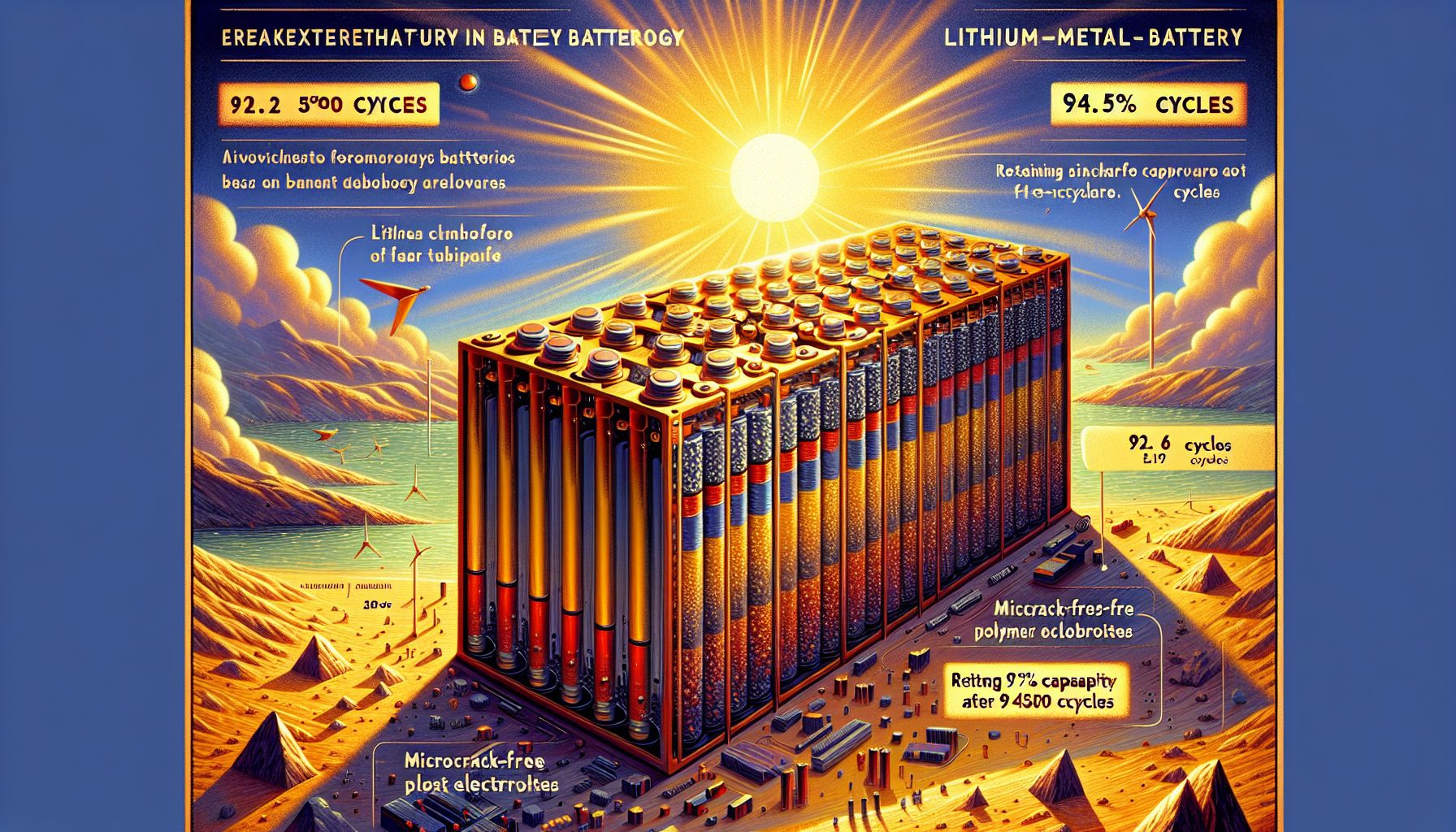Breakthrough Battery Withstands Extreme Heat, Revolutionizing Energy Storage

Netherlands, Wednesday, 24 July 2024.
University of Hong Kong researchers develop lithium-metal batteries operating at 100°C (212°F), retaining 92.7% capacity after 450 cycles. This innovation, using microcrack-free polymer electrolytes, outperforms conventional batteries lasting fewer than 10 cycles at high temperatures, potentially transforming high-temperature applications and fast-charging capabilities.
Introduction to the Lithium-Metal Battery Innovation
The newly developed lithium-metal battery by researchers at the University of Hong Kong represents a significant leap in battery technology. This battery maintains an impressive 92.7% capacity after 450 charge cycles at temperatures as high as 100°C (212°F). In contrast, conventional lithium-metal batteries typically degrade rapidly under such conditions, often failing after fewer than 10 cycles. This breakthrough, led by Professor Dong-Myeong Shin, leverages microcrack-free polymer electrolytes to enhance both the safety and longevity of the battery.
Mechanics and Benefits of the New Battery
The key to this battery’s performance lies in its microcrack-free polymer electrolytes, which are synthesized through a one-step click reaction. These electrolytes exhibit resistance to dendrite growth, a common issue in lithium-metal batteries where tree-like structures form on the electrodes, causing capacity loss and potential safety hazards. Additionally, the polymer electrolytes are non-flammable, significantly improving the safety profile of the battery. The ionic conductivity of the battery is measured at 3.1 × 10−5 S cm−1 at high temperatures, with an electrochemical stability window up to 5 V, making it suitable for high-energy applications.
Applications and Future Prospects
This advanced battery technology holds promise for a variety of high-temperature applications, including heavy industries such as oil and gas, as well as medical equipment that requires sterilization at high temperatures. The automotive industry, particularly electric vehicles (EVs), could also benefit from this innovation. The ability to maintain high capacity at elevated temperatures ensures that EVs can operate efficiently even under strenuous conditions. Moreover, the microcrack-free electrolyte membranes enable fast charging due to their low overpotential, potentially allowing EVs to recharge in the time it takes to drink a cup of coffee.
Challenges and Research Implications
While the current prototype demonstrates significant potential, there are still challenges to overcome before this technology can be scaled up for commercial use. The researchers emphasize that further studies are required to determine the scalability and cost-effectiveness of these batteries. Nonetheless, the findings published in the journal Advanced Science signify a pivotal moment in battery research. Dr. Jingyi Gao, the first author of the paper, believes that this innovation opens new avenues for developing rechargeable batteries that prioritize safety and longevity in high-temperature environments.
Conclusion
The development of this lithium-metal battery by the University of Hong Kong marks a transformative step in energy storage technology. By addressing the common issues of dendrite growth and flammability, and by demonstrating remarkable capacity retention at high temperatures, this innovation paves the way for more durable and efficient batteries. As research continues, the potential applications across various industries could revolutionize how we store and use energy, particularly in high-temperature and fast-charging scenarios.

